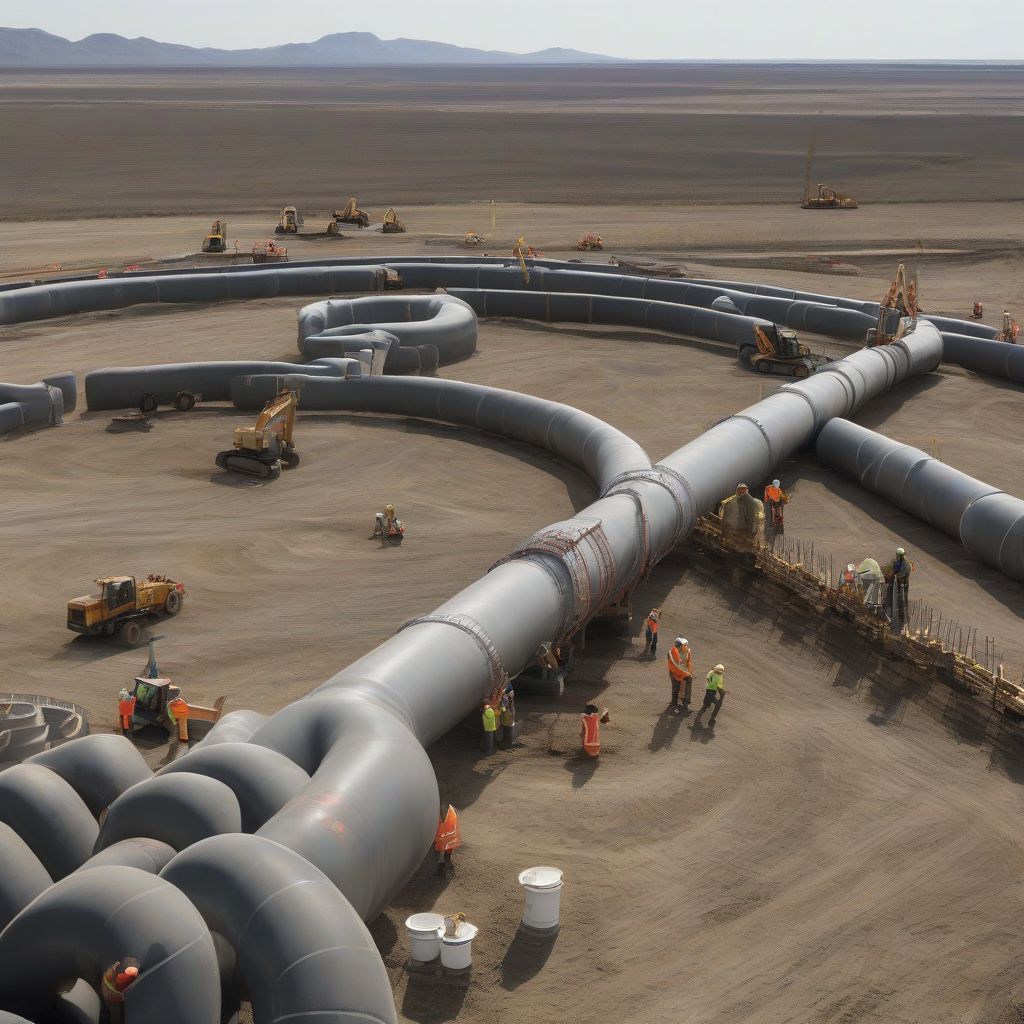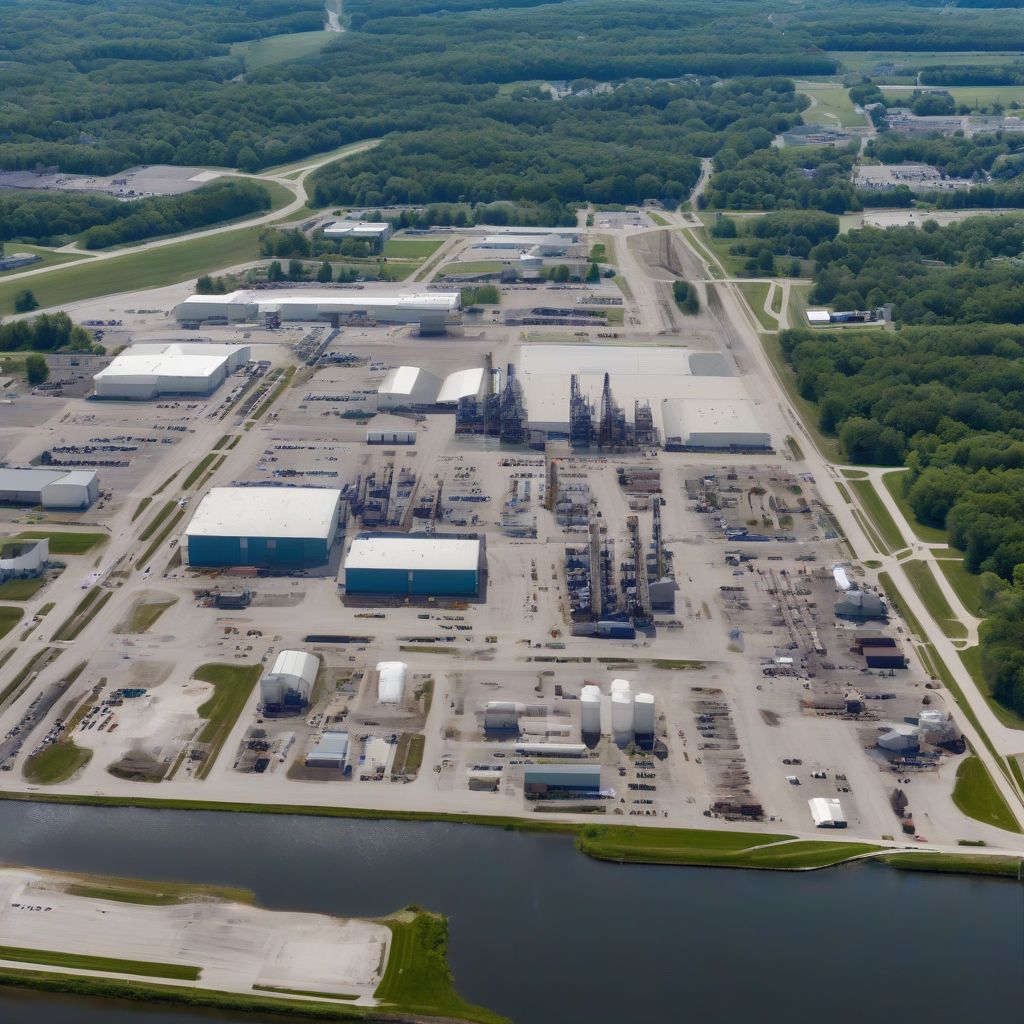Navigating the Energy Landscape: A Deep Dive into Global Industrial Contractors

The energy sector, a dynamic interplay of fossil fuels, renewables, and cutting-edge technologies, is constantly evolving. At the heart of this global powerhouse lie Global Industrial Contractors, the architects and builders of the complex infrastructure that powers our world.
 Pipeline Construction
Pipeline Construction
Understanding the Role of Global Industrial Contractors
Global industrial contractors are companies that specialize in the design, engineering, procurement, construction, and maintenance of large-scale industrial projects. Their expertise spans a wide range of sectors, including:
- Oil and Gas: Exploration, production, refining, and transportation of oil and natural gas.
- Power Generation: Construction of power plants, including traditional fossil fuel-powered facilities, nuclear power plants, and renewable energy projects (solar, wind, hydro).
- Petrochemicals: Design and construction of plants that convert petroleum and natural gas into valuable chemicals and products.
- Infrastructure: Development of essential infrastructure, such as pipelines, storage facilities, terminals, and transportation networks.
These contractors are essential in translating complex engineering blueprints into tangible assets that form the backbone of global energy supply chains.
Delving into Common Queries about Global Industrial Contractors
The world of global industrial contracting is vast and complex, often prompting questions from investors, industry professionals, and the general public alike. Let’s address some of the most frequently asked questions:
1. What are the key factors driving the demand for global industrial contractors?
Several factors fuel the demand for these specialized companies, including:
- Growing Global Energy Demand: As populations and economies expand, the need for reliable and sustainable energy sources continues to rise.
- Shift to Renewables: The transition to cleaner energy sources like solar and wind power necessitates the construction of new infrastructure and the adaptation of existing grids.
- Aging Infrastructure: Many existing energy facilities are nearing the end of their lifespan, requiring maintenance, upgrades, or replacements.
- Technological Advancements: The emergence of new technologies, such as carbon capture and storage and advanced nuclear reactors, creates opportunities for contractors to build the infrastructure of the future.
2. What are the biggest challenges faced by global industrial contractors?
Operating in the global energy arena comes with its share of challenges, including:
- Volatile Commodity Prices: Fluctuations in oil and gas prices can significantly impact project feasibility and profitability.
- Complex Regulatory Environments: Navigating diverse and ever-changing environmental regulations and permitting processes across different countries can be a major hurdle.
- Skilled Labor Shortages: Finding and retaining a highly skilled workforce, especially in specialized fields like welding and engineering, is a persistent challenge.
- Safety and Risk Management: Ensuring worker safety and managing the inherent risks associated with large-scale construction projects, often in remote or challenging environments, is paramount.
3. How do global industrial contractors contribute to energy security?
These contractors play a critical role in strengthening energy security by:
- Diversifying Energy Sources: Building infrastructure for a variety of energy sources, reducing reliance on a single fuel or supplier.
- Enhancing Energy Efficiency: Implementing technologies and practices that reduce energy waste and optimize operations throughout the project lifecycle.
- Improving Infrastructure Resilience: Designing and constructing facilities that can withstand natural disasters and other disruptions, ensuring energy availability even in challenging circumstances.
Key Considerations in the World of Global Industrial Contracting
The success of global industrial contracting hinges on several key factors:
- Technological Prowess: Staying at the forefront of engineering and construction technologies is crucial to deliver projects efficiently and safely.
- Sustainability Focus: Incorporating sustainable practices throughout the project lifecycle, minimizing environmental impact, and promoting social responsibility.
- Strong Partnerships: Building collaborative relationships with clients, suppliers, local communities, and governments is essential for project success.
Examples of Global Industrial Contractors in Action
The impact of global industrial contractors can be seen in projects worldwide:
- The Nord Stream 2 Pipeline: A massive natural gas pipeline project connecting Russia to Germany, demonstrating the scale and complexity of these undertakings.
- The Tengiz Oil Field Expansion: A major expansion project in Kazakhstan, highlighting the role of contractors in maximizing production from existing energy resources.
- The Ivanpah Solar Power Facility: Located in the Mojave Desert, this facility showcases the expertise of contractors in constructing large-scale renewable energy projects.
Conclusion: Shaping the Future of Energy
Global industrial contractors are indispensable partners in meeting the world’s evolving energy needs. Their ability to navigate complex challenges, embrace technological advancements, and prioritize sustainability will continue to shape the future of energy infrastructure. As the demand for energy grows and the industry undergoes a transformative shift toward cleaner sources, the role of these contractors will only become more critical in ensuring a sustainable and energy-secure future for all.

Leave a Comment